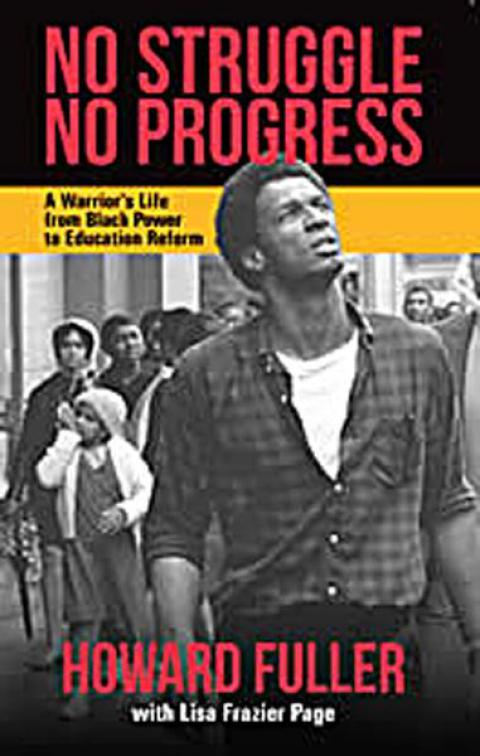Howard Fuller was back in North Carolina last week promoting his new book, “No Struggle, No Progress: A Warrior’s Life from Black Power to Education Reform.”
Fuller is a professor of education and director of the Institute for the Transformation of Learning at Marquette University.
Some North Carolinians remember Fuller as a community organizer in the 1960s and ’70s. He led poor people to demand fair treatment, to work together to improve their lives and to stand up to the establishment at every turn. He led marches and founded Malcolm X Liberation University in Durham and Greensboro. His efforts challenged the state’s racial and economic status quo. When he left, he says that he was probably the most hated man in the state.
After leaving North Carolina, he became a political insider, serving in the cabinet of a Democratic Wisconsin governor and as superintendant of Milwaukee public schools.
Like Los Angeles schools superintendent John Deasy, who resigned last week, and heads of schools in New York City and Washington, D.C., Fuller lost his job after pushing hard for reform, clashing with teachers unions and losing allies on the school board.
The mission of Fuller’s institute at Marquette is “to support exemplary education options that transform learning for children, while empowering families, particularly low-income families, to choose the best options for their children.”
That mission statement sounds non-controversial until Fuller explains that he is an advocate for state-funded vouchers for poor parents to pay for their children to attend private or parochial schools.
He opens his book with a description of his meeting in Austin in 1999 with Texas Gov. George W. Bush to work on a voucher proposal. After the meeting Bush invited Fuller to come to Washington when he became president. Although he liked Bush, Fuller declined. He explains, “I am not a loyalist. I’m not the kind of person who can just go along with the party line for the sake of politics when I disagree on matters of importance.”
Nevertheless, the former radical leader now finds himself in partnership with former adversaries as an advocate for school choice and vouchers. He says he is “a novelty, an outspoken black man and former large system school superintendent who supported a growing movement that was largely championed by conservative white people.”
His book explains how his time in North Carolina and the experiences that followed led him to rethink his assumptions about the best ways to achieve the goals of the American civil rights movement.
Whatever you think of Fuller’s political views, his radical ones in 1960s North Carolina or his current pro-school voucher advocacy, his story is compelling. He grew up in Shreveport, La., and Milwaukee, raised by a loving mother and grandmother, whose guidance and confidence ensured he was ready for college. A basketball scholarship to formerly all-white Carroll College near Milwaukee, opened other doors.
After graduate school, the North Carolina experience, and a visit to the revolutionary forces fighting for independence in Mozambique, he made his way back to Milwaukee. By successfully working in the black community for a Wisconsin gubernatorial candidate who had little organized black support, he gained a cabinet position in state government.
That experience led to other high-level jobs in the Milwaukee schools and at Marquette.
His advocacy for vouchers makes him an ally with conservative advocates. Fuller is happy to find common ground with those he might oppose on other issues.
But there is a danger. Fuller favors vouchers only for poor families. Many of his allies want to make them available without income limits.
When Wisconsin Gov. Scott Walker proposed completely eliminating the income gap, Fuller issued a warning: “If the proposed changes were adopted, this is where I get off the train.”
Fuller’s risk is that the unlimited voucher train will have reached its destination before he gets off.
D.G. Martin hosts “North Carolina Bookwatch,” which airs Sundays at noon and Thursdays at 5 p.m. on UNC-TV. Preview the upcoming program on UNC-MX digital channel (Time Warner #1276) on Fridays at 9 p.m. Next week’s (Sunday and Oct. 30) guest is Elaine Orr, author of “A Different Sun: A Novel of Africa.” To view prior programs: http://video.unctv.org/program/nc-bookwatch/episodes/. For upcoming programs: www.unctv.org/ncbookwatch


Spread the word